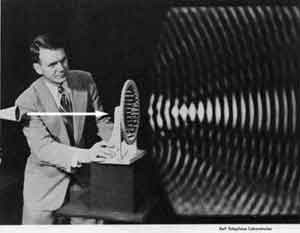
Image source: USGS
Yesterday, Facebook was frequently mentioned at the Symposium on Reputation Economies in Cyberspace conference, but I’m trying to figure out what is the value my Facebook network.
For a free service, Facebook is getting expensive. Not just for Microsoft, but for the users who maintain their social network. Dealing with Pokes, Invites and Scrabulous take time, effort and bandwidth. As the popularity and membership of Facebook increases, the cost for not participating grows as well. Just as there are costs associated with not having a telephone or email address, the social and economic pressure to join these sites can be readily felt.
These Facebook clicks of “friendship†are simple gestures that replace deeper interactions. This form of communication is low bandwidth, in terms of data but more importantly of cognition. We are now able to easily increase our social networks in terms of reach, but the fidelity of our interactions within the networks is decreasing. Facebook seems to value to the size of the network, but not the fidelity of the links. The value of a network is not only the number of nodes, but also the quality of the information that flows through the edges between the nodes. Finally, the work of Ronald Burt suggests that there is value in having a network that is unique from those with whom are competing. The low fidelity of Facebook communications show a shift toward networks which have low costs, effort, and unique characteristics, which overall have less value than we suppose.
Looking at usage rates, it is becoming the preferred tool for many people, young and old. One of the main reasons Facebook is a popular because of its convenience. We are able to maintain these relationships, which seemingly take a minimal amount of effort. A simple click allows us exchange gifts, play a game, or say hello. It also increases the efficiency of the user by automating one communication effort across many friends. By filling one movie quiz, we are able to apply this work to all our other friends who answered the questionnaire describing how much they liked “Shrek.†In a way, it’s like sending out a mass interactive Holiday Letter, which is admittedly better than nothing, but not quite fulfilling. Nevertheless, these Facebook apps are extremely efficient for members who have hundreds of friends. We are able to interact with all these friends though one gesture. For many current and recent students, Facebook is an intimate part of their social experience. However it is successful because it is compliments real time interactions, of a past history of deeper real time interactions. These compliments could have been face to face or some other digital communication form that has more fidelity than a Facebook post of ten word sentence on a user’s Wall.
What is the meaning of these gestures? What is the meaning when an app is flawed, as in the case of the movie taste matching application, if none of my favorite movies are listed? What is the cost of forgoing communication with higher fidelity?
The adoption of Facebook shows our willingness to extend a network (adding nodes) in exchange for quality of information and even meaning. Facebook is an important tool for maintaining relationships, especially when a person in a friendship moves away, such as attending a different university after high school or leaving a job. Before, these ties may have dissolved, but now they have a longer lifespan. But how long can a purely Facebook relationship last within itself?
The beauty of Facebook, and one of the reasons for it adoption, is that we can fake friendship, which is to say, simulate a relationship with minimal work. Rather than actually having a meaningful exchange with a person, in a couple of clicks you can send the latest application interaction to her. But has anything meaningful been communicated?
We do not acknowledge the trade offs between a large social graph with less fidelity in communication and a smaller social graph with higher fidelity in communication. With high fidelity, and more information, the relationship and connection will most likely wither away. This trade off is important and often left unconsidered.



